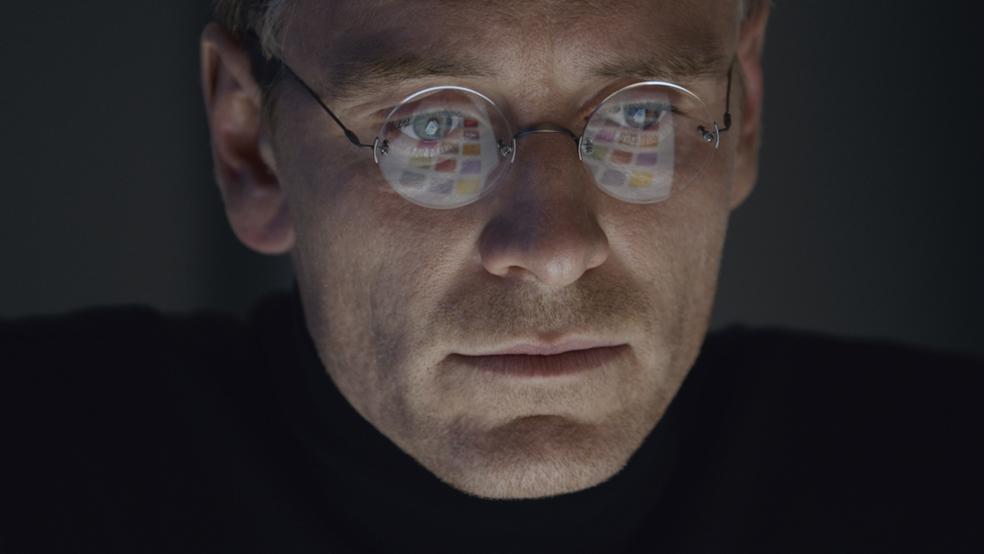Steve Jobs had all of the makings of traditional October Oscar bait. Director Danny Boyle is often a kinetic director bringing life to seemingly inert topics like junkies (Trainspotting), zombies (28 Days Later--he almost single handedly brought on “The Walking Dead” phenomenon), game shows (Slumdog Millionaire, for which he won his Oscar), or a man trapped in a hole (127 Hours). He has hipster cool, mainstream success and critical acclaim.
Screenwriter Aaron Sorkin proved an able hand at dialogue and in finding engaging screen drama from A Few Good Men to Moneyball. With The Social Network, Sorkin turned a prickly tech innovator into engaging cinema. Making a Harvard smart ass into a compelling lead character was a challenge; Steve Jobs, on the other hand, was a fully formed character, ably sketched in Walter Isaacson’s best-selling biography, on which the movie is based.
Related: Godfathers, Gamblers and Goodfellas: America’s Love Affair with the Mob
In lead actor Michael Fassbender, the producers have the most in-demand actor currently working, and in a curiously lifeless autumn, the film was released without a serious rival. It should have owned this weekend like an Apple press conference. Instead, in its first weekend in wide release, Steve Jobs pulled in $7.27 million. Finishing in 7th, behind the moderately successful sci-fi film The Martian, in its 5th weekend. So what happened?
Some have laid the blame at the feet of Jobs himself. Biopics are notoriously tricky to pull off, partially because lives rarely conform to narrative structure. Jobs’ status in American culture as an icon and innovator doesn’t necessarily mean he’s dramatically interesting. We’ve never really had biopics on say, Thomas Edison or Albert Einstein. Despite many attempts, there has never really been a good biopic about Elvis or The Beatles.
The modern trend in biopics has been to go micro, focusing on one detail to tell the story of one person’s life. Lincoln focused only on the attempt to pass the 14th amendment. Walk The Line was about Johnny Cash’s drug addiction and recovery with the aid of his performing partner/mistress/wife. Jobs attempted this by focusing on three Apple product launches and making a movie that was sub-textually about work-life balance, surely a hot button topic of our time, but so far, it has failed to catch fire.
The fact is, we care about the products far more than the inventor -- particularly an inventor whose life is so messy and unsentimental.
Others have laid the blame at Fassbender, who through his role in the X-men franchise is in the public eye and is undeniably handsome, but can seem more than a little cold and intellectual. But this hardly accounts for the success of Jesse Eisenberg as Mark Zuckerberg in The Social Network, just as much if not more an unconventional leading man as Fassbender. The earlier Sorkin script, which focused on Zuckerberg’s legal battle with the Winklevoss twins, had a jocks-vs-nerd story at its heart and the vice-trap like direction of misanthrope extraordinaire David Fincher.
Related: The Long, Slow Death of Cable Just Reached a Tipping Point
Perhaps more importantly, The Social Network came out five years ago, and it is entirely likely that in the current climate it would have tanked just as hard. Five years ago, Netflix streaming was still new and novel. Hulu, HBO, and Amazon were yet to make their moves in the space. And the technology wasn’t quite there yet.
So as Jobs joins the Stephen Spielberg directed, Tom Hanks starring film Bridge of Spies in the litany of reasons that this is a disappointing October for Hollywood, it would seem that the industry is stuck in a cycle. Actors and directors want to make these kinds of movies, rather than act in front of a green screen. Critics would rather watch these movies than yet another superhero film, gross out comedy or found footage film. Intelligent work is being done on Television, but the industry clings to the idea that cinema is the highest echelon, and so they keep making films that do not bring audiences to the movies.
In the long haul, particularly with award recognition, Jobs will probably do alright. Like millions of Americans, I’ll probably just stream it on my iPad.




